Paris, you know I love you. But enough with these mansard roofs already. Time to head to Champagne.
Caught the 34 bus to to Gare de L’est/had time for a short beer first, thank god! I was thirsty from that hike up Montmartre. If I get out of here by 7 pm I could be in Reims by 8– 830 pm at latest. not too bad considering I still need an adapter and charge up my phone and laptop.
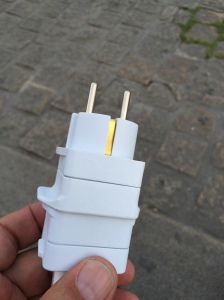
It’s May 25. Heading out of Paris, we cross over this elevated train station decked out in steel girders and rivets looking very Victorian, like the dorsal ridge on Jules Vernes’ Nautilus. A big part of Paris is preserved in Belle Epoch amber, giving the city a soft golden glow at twilight. Everywhere I go there is the past colliding with the future, and the past is winning. Art Nouveau trumps Brutalism. LeCorbusier and Prouve beat I.M. Pei and Phillip Johnson. Guimard and Andre have it over Nouvel and Charpentier. George Haussmann’s vision of Paris endures while Georges Pompidou’s fades.
The past’s version of the future is way more romantic than the present version of tomorrow. What will the future’s version of yesterday look like? La Defense or Le Marais?
Having just crossed the channel from London, comparisons seem inevitable. Paris is, in a word, fanciful. London, practical. Utile. Paris is your mother, no more like your eccentric aunt sipping champagne and running an art gallery or hat boutique, a fascinating but utterly useless place that exists by its own whims, without explanation or engine.
London is your father, or grandfather. Stern pinstriped banker or barrister, but with a foot fetish and a taste for Beefeater’s gin and a good paddling at the end of the day. French have affairs de couer. Brits engage in a bit of slap and tickle.
Paris is melancholy, London is diffident.
I doze off on the train, dream of three biscottis. When I awake, the man in the seat across the aisle is looking at me funny weird.
******
My uncle Bill — technically my father’s uncle because he’s the half-brother of my grandmother, my dad’s mom — greets me at the station in Reims. It’s a bit awkward since we’ve never met until now, but there is a familiarity. My DNA knows his DNA, they are attuned to the same frequency and vibrate. “Hello, kinfolk.”
Strange to meet a man I’ve heard so much about all my life. He is younger than my dad by a few years, the byproduct of great-grandfather Earl and his second wife Aubrey Lee, quite a lady from what I have heard about her. Never met her, either.
Bill is polite, quiet, a bit taciturn. Not surprised, really. It’s a Graham quality I’ve noticed before. He doesn’t exactly complain, but points out that the Chateau Thierry station is closer to the house than Reims and what with the trucker strike, you never know when the gas will run out at the station so you’ve got to use your fuel judiciously. Or was it wisely? Carefully. Ration your fuel carefully. Only drive when you absolutely must.
We stop in the little village of Dormans and eat at Sylvain Suty. Salade lardons topped with fried goat cheese and egg, homemade potato crisps and a medley of fresh veggies. All of it washed down with a lovely bottle of red wine.
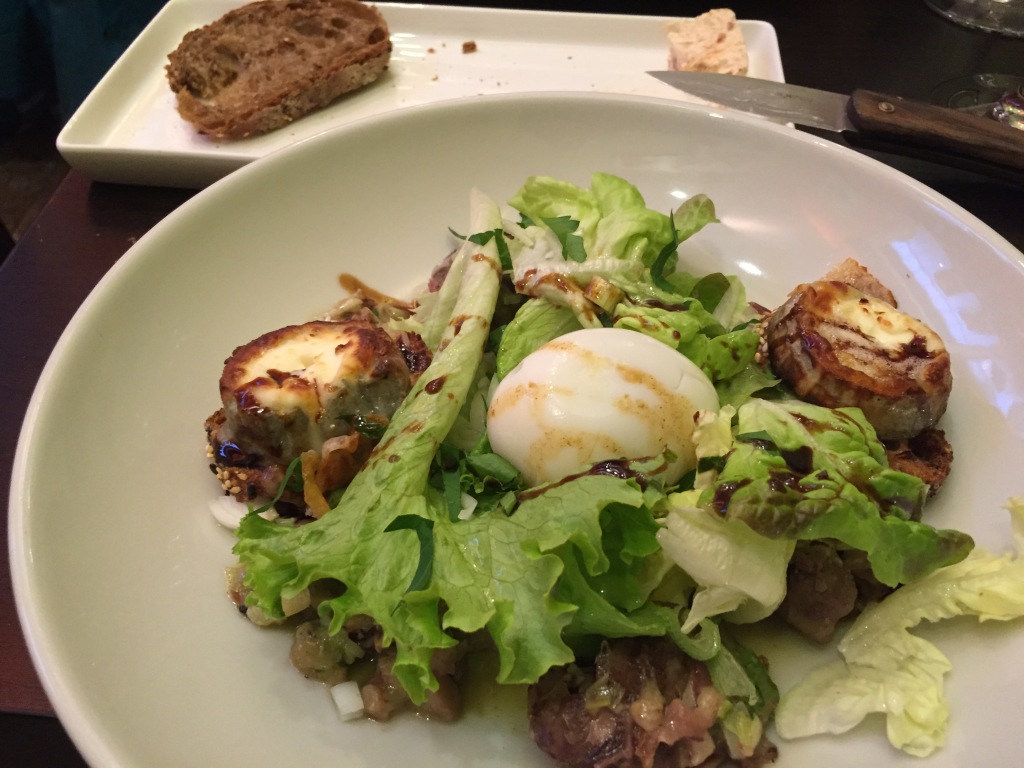
Bill has lived in France some 35 years. He was a commercial photographer who did a bit of photography for National Geographic doing a stint in the Peace Corps. He met Meredith, a former art history professor at Columbia who worked for the Met.
They met in Paris, while she was working for Columbia and he was running a compute store. They got their first apartment in Paris, and her father, Walter, said they should find some land in the country “where you could put your feet in the grass.”
*******
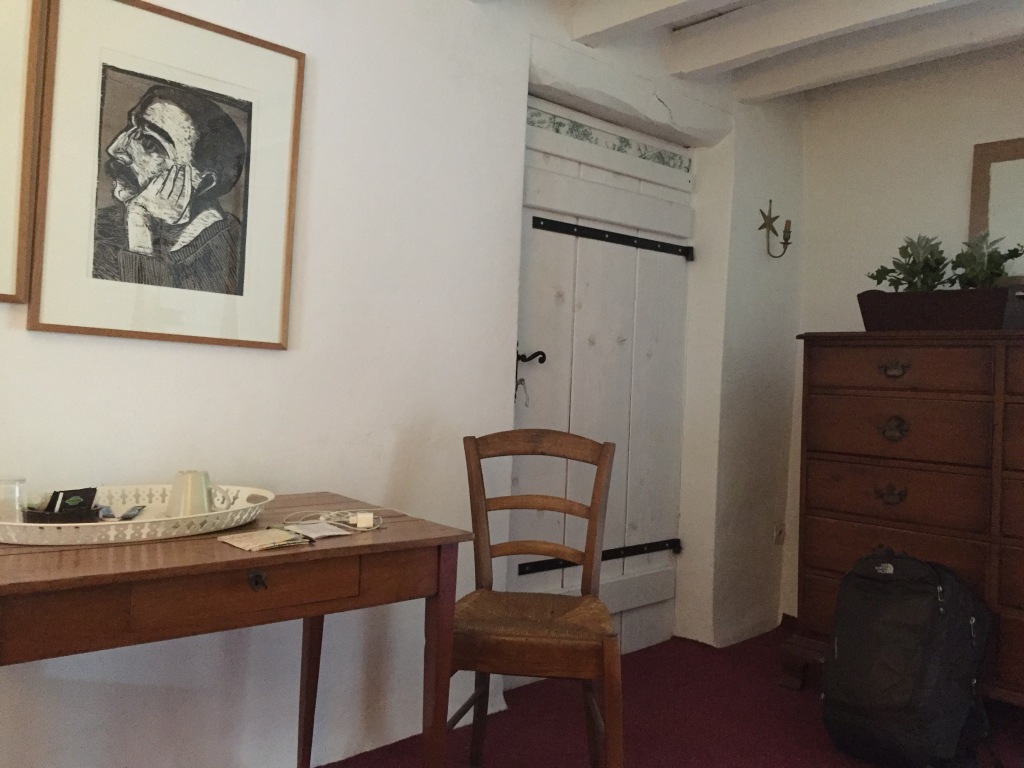 I wake up the next morning in a bed in a room where Dwight Eisenhower’s son once slept. There are rough hewn beams overhead. A table in the room has an electric kettle, packets of tea and coffee, sugar. I have my own bathroom.
I wake up the next morning in a bed in a room where Dwight Eisenhower’s son once slept. There are rough hewn beams overhead. A table in the room has an electric kettle, packets of tea and coffee, sugar. I have my own bathroom.
When we pulled up to the place the night before I was overwhelmed by the building’s rustic charm. Lilacs growing everywhere. Pear trees. The rough-hewn walls, the window shutters, the roof shingles. It’s exactly what I imagined an 18th century farmhouse would look like.
“We’ll die running this place,” Meredith says when I meet her at breakfast. She is frail, spritely, with fierce blue eyes in her white-pink face.
The other guests are a Dutch couple. The husband was here with a crew to work on the railroads. They were a boisterous couple, talking freely about the other people they met here. The lawyers and designers from Connecticut who had a list of growers to meet and talk about selling their Champagne online. They couldn’t agree on where they’d been or what they tasted. Never did it. Too much involved.
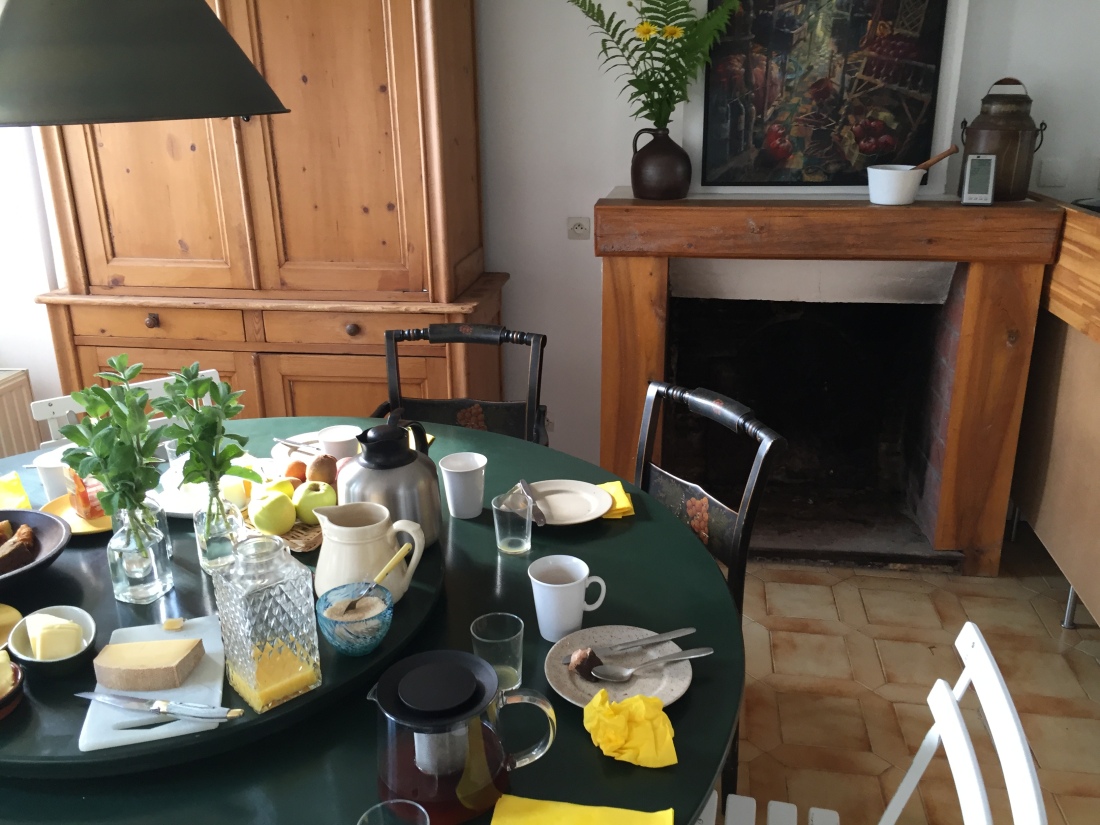
They had a large round table in the kitchen with the largest lazy Susan I’d ever seen loaded with jams and butter and homemade bread and croissants and muffins. Meredith asked if I wanted eggs so I said sure.
Afterwards I walked around the property, discovered the four a pain in the backyard where villagers of Reuilly-Sauvigny who didn’t have ovens of their own used to have their bread baked.
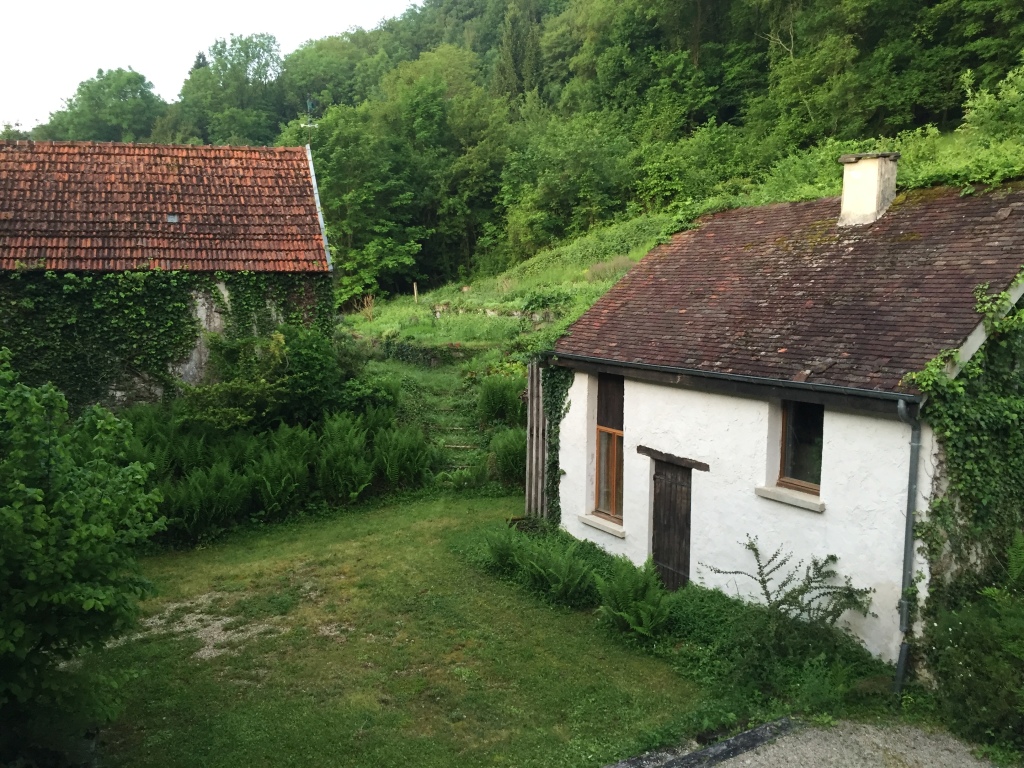
I hiked up the hill to the A-Frame and the frog pond that overlooked the farmhouse, the barn, the terracotta roofs of the small village at the end of my uncle’s drive he dubbed Rue Des Vaches.
At the end of their drive was an obelisk erected in memory of the soldiers from the village — “Aux Enfants de Reuilly-Sauvigny qui mort pour la France” during both world wars.
A nearby fountain for nonpotable water was where the villagers used to do their laundry.
They called it the Champagne B&B because it was in the heart of Epernay, the heart of Champagne Country, on the Rue du Vigneaux.
I believed I had found my home. I believed I could live here forever. I am drinking stars.




